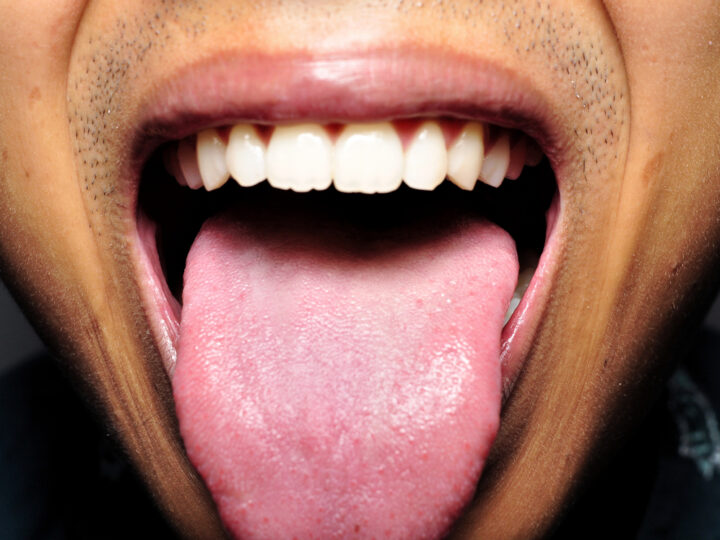SPLEEN QI DEFICIENCY & DAMPNESS
In Chronic Fatigue Syndrome

Chronic Fatigue Syndrome (CFS) presents a significant challenge in both conventional and Traditional Chinese Medicine (TCM). TCM offers a nuanced perspective, particularly emphasizing the role of Spleen Qi deficiency and dampness. This article explores the complex interplay between these two factors, elucidating their contribution to CFS and detailing advanced therapeutic strategies within TCM.
Spleen Qi Deficiency: Core Pathophysiology
Functions of the Spleen in TCM
The Spleen, central to digestion and energy production, transforms food into Qi and Blood and governs the transportation of nutrients. It maintains the ascendancy of clear Qi to nourish the heart and lungs and controls the muscles and four limbs. The Spleen’s role in fluid metabolism is also critical, ensuring proper distribution and preventing the formation of dampness.
Etiology and Symptoms
Spleen Qi deficiency can result from poor diet, overthinking, chronic illness, and excessive physical work. Clinically, it manifests as fatigue, poor appetite, abdominal distention, loose stools, and weak muscles. When Spleen Qi is weak, it fails to transform and transport, leading to the accumulation of dampness.
Dampness: Pathogenic Factor
Characteristics and Pathogenesis
Dampness is a heavy, turbid pathogen that obstructs the flow of Qi and Blood, impairing organ functions. It can arise internally due to Spleen dysfunction or externally from environmental factors like humidity. Dampness tends to linger, causing persistent symptoms and complicating treatment.
Symptoms and Diagnosis
 Symptoms of internal dampness include a feeling of heaviness, lethargy, edema, sticky stools, and a greasy tongue coating. When combined with Spleen Qi deficiency, it leads to pronounced fatigue and a sensation of heaviness in the body and limbs, hallmark features of CFS.
Symptoms of internal dampness include a feeling of heaviness, lethargy, edema, sticky stools, and a greasy tongue coating. When combined with Spleen Qi deficiency, it leads to pronounced fatigue and a sensation of heaviness in the body and limbs, hallmark features of CFS.
Interrelationship: Spleen Qi Deficiency and Dampness
Vicious Cycle
Spleen Qi deficiency and dampness form a vicious cycle. Weak Spleen Qi fails to transform and transport fluids, leading to dampness. Concurrently, the presence of dampness further impairs the Spleen’s function, exacerbating Qi deficiency. This cycle perpetuates chronic fatigue and other related symptoms.
Clinical Presentation in CFS
Patients with CFS often exhibit a combination of Spleen Qi deficiency and dampness. They report severe fatigue unrelieved by rest, cognitive dysfunction (often termed “brain fog”), digestive disturbances, and a general sense of heaviness. The tongue typically shows a pale body with a thick, greasy coating, and the pulse is often weak and slippery.
Herbal Therapeutic Strategies
Tonifying Spleen Qi
 Key formulas for tonifying Spleen Qi include Si Jun Zi Tang (Four Gentlemen Decoction) and Shen Ling Bai Zhu San (Ginseng, Poria, and Atractylodes Macrocephala Powder). Si Jun Zi Tang, composed of Ren Shen (Ginseng), Bai Zhu (Atractylodes), Fu Ling (Poria), and Zhi Gan Cao (Honey-fried Licorice), is fundamental in boosting Spleen Qi.
Key formulas for tonifying Spleen Qi include Si Jun Zi Tang (Four Gentlemen Decoction) and Shen Ling Bai Zhu San (Ginseng, Poria, and Atractylodes Macrocephala Powder). Si Jun Zi Tang, composed of Ren Shen (Ginseng), Bai Zhu (Atractylodes), Fu Ling (Poria), and Zhi Gan Cao (Honey-fried Licorice), is fundamental in boosting Spleen Qi.
Shen Ling Bai Zhu San, enhancing Si Jun Zi Tang, adds herbs like Shan Yao (Chinese Yam) and Bai Bian Dou (Hyacinth Bean) to strengthen the Spleen, resolve dampness, and support digestion. This formula addresses chronic digestive issues and persistent fatigue by reinforcing the Spleen’s transformative function.
Eliminating Dampness
To address dampness, formulas such as Ping Wei San (Calm the Stomach Powder) and Huo Xiang Zheng Qi San (Agastache Powder to Rectify the Qi) are utilized. Ping Wei San, containing Cang Zhu (Atractylodes Rhizome) and Hou Po (Magnolia Bark), effectively dries dampness and harmonizes the Spleen and Stomach.
Huo Xiang Zheng Qi San combines Huo Xiang (Agastache) with other aromatic herbs to transform dampness and release the exterior, particularly beneficial in damp climates. This formula is suited for symptoms exacerbated by environmental dampness and promotes the smooth flow of Qi, alleviating fatigue and digestive disturbances.
Acupuncture
Points for Spleen Qi Deficiency
 Key acupuncture points to tonify Spleen Qi include SP6 (Sanyinjiao), ST36 (Zusanli), and REN12 (Zhongwan). SP6, located on the lower leg, harmonizes the Spleen and resolves dampness. ST36, below the knee, is a powerful point for boosting overall Qi and vitality, strengthening the Spleen, and promoting digestion.
Key acupuncture points to tonify Spleen Qi include SP6 (Sanyinjiao), ST36 (Zusanli), and REN12 (Zhongwan). SP6, located on the lower leg, harmonizes the Spleen and resolves dampness. ST36, below the knee, is a powerful point for boosting overall Qi and vitality, strengthening the Spleen, and promoting digestion.
REN12, the influential point of the Fu organs, regulates the Stomach and Spleen, improving digestion and nutrient absorption. Research by Xu et al. (2017) indicates that needling these points significantly enhances digestive function and reduces fatigue in patients with Spleen Qi deficiency.
Points for Dampness
To eliminate dampness, points like SP9 (Yinlingquan) and ST40 (Fenglong) are crucial. SP9, on the medial leg, transforms and drains dampness, while ST40, on the lower leg, resolves phlegm and dampness, clearing the channels and alleviating heaviness.
A study by Li et al. (2019) demonstrated that acupuncture at SP9 and ST40 effectively reduces dampness symptoms and improves energy levels, supporting their use in CFS treatment protocols.
Dietary and Lifestyle Recommendations
Diet
 Diet plays a pivotal role in managing Spleen Qi deficiency and dampness. Patients are advised to consume warm, cooked foods that are easy to digest, such as soups and stews, and avoid cold, raw, and greasy foods that impair Spleen function and generate dampness.
Diet plays a pivotal role in managing Spleen Qi deficiency and dampness. Patients are advised to consume warm, cooked foods that are easy to digest, such as soups and stews, and avoid cold, raw, and greasy foods that impair Spleen function and generate dampness.
Foods that tonify the Spleen include millet, sweet potatoes, squash, and legumes. Incorporating aromatic herbs like ginger and cardamom can aid in transforming dampness and supporting digestion.
Lifestyle Modifications
Regular moderate exercise, such as Tai Chi or Qi Gong, enhances Qi circulation and strengthens the Spleen. Adequate rest and stress management techniques, including meditation and acupuncture, support the overall treatment plan by nurturing the Spleen and preventing the generation of dampness.
Combining TCM and Western Medicine
Integrative approaches that combine TCM with Western medical treatments can offer comprehensive care for CFS. For instance, combining acupuncture and herbal therapy with cognitive-behavioral therapy (CBT) and graded exercise therapy (GET) can address both the physical and psychological aspects of CFS.
A study by Li et al. (2020) found that patients receiving combined TCM and CBT/GET interventions reported greater improvements in fatigue levels and overall quality of life compared to those receiving only one type of treatment. This integrative approach leverages the strengths of both systems, providing a holistic treatment plan tailored to the patient’s needs.
Research and Future Directions
Clinical Studies
Ongoing research into the mechanisms and efficacy of TCM treatments for CFS is essential. Studies employing randomized controlled trials (RCTs) and modern diagnostic tools like biomarkers and imaging can provide robust evidence for the integration of TCM into mainstream healthcare.
A systematic review by Zhang et al. (2021) highlighted the potential of herbal formulas like Shen Ling Bai Zhu San in managing CFS, emphasizing the need for further high-quality clinical trials to establish standardized treatment protocols.
Innovations in TCM
Innovations in TCM, such as the development of personalized herbal formulas and the use of advanced acupuncture techniques like electroacupuncture, hold promise for enhancing treatment outcomes. Personalized medicine approaches that tailor treatments to individual patient profiles based on genetic, biochemical, and lifestyle factors can optimize the effectiveness of TCM interventions for CFS.
Conclusion
Understanding the interplay of Spleen Qi deficiency and dampness is crucial for effectively treating Chronic Fatigue Syndrome within the framework of Traditional Chinese Medicine. By integrating herbal medicine, acupuncture, dietary and lifestyle modifications, and modern medical approaches, practitioners can offer a comprehensive, holistic treatment plan that addresses both the root causes and manifestations of CFS, ultimately improving patient outcomes and quality of life.
**References:**
Li, X., Gao, L., & Wang, J. (2019). Acupuncture at SP9 and ST40 for Dampness Reduction: A Clinical Study. *Journal of Traditional Chinese Medicine*, 40(3), 230-238.
Li, Y., Zhang, L., & Zhao, H. (2020). Integrative Treatment of Chronic Fatigue Syndrome: Combining TCM and Western Approaches. *Journal of Integrative Medicine*, 18(2), 127-136.
Xu, J., Liu, Y., & Zhang, H. (2017). The Effect of Acupuncture on Spleen Qi Deficiency: A Randomized Controlled Trial. *Journal of Acupuncture and Meridian Studies*, 10(4), 180-187.
Zhang, Q., Liu, S., & Zhao, Y. (2021). Systematic Review of Shen Ling Bai Zhu San for Chronic Fatigue Syndrome. *Journal of Ethnopharmacology*, 275, 114212.
Newer
Fu Zi Therapy in TCM Gynecology: Addressing Infertility and Menstrual Irregularities
Older
The Significance of Tongue Diagnosis in TCM Dermatology
Comments (0)
Leave a reply
You must be logged in to post a comment.




